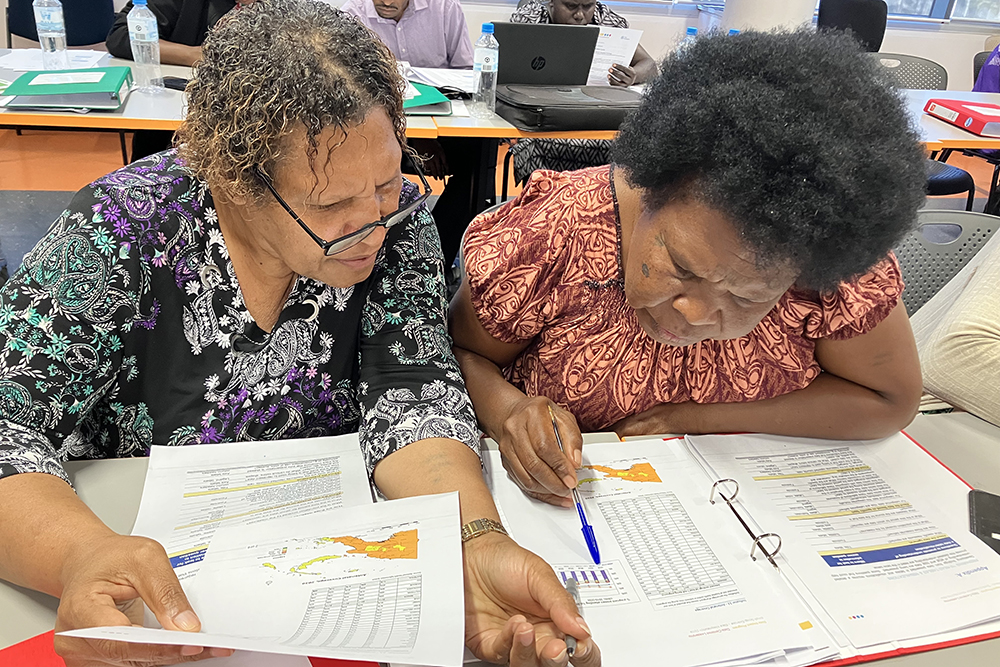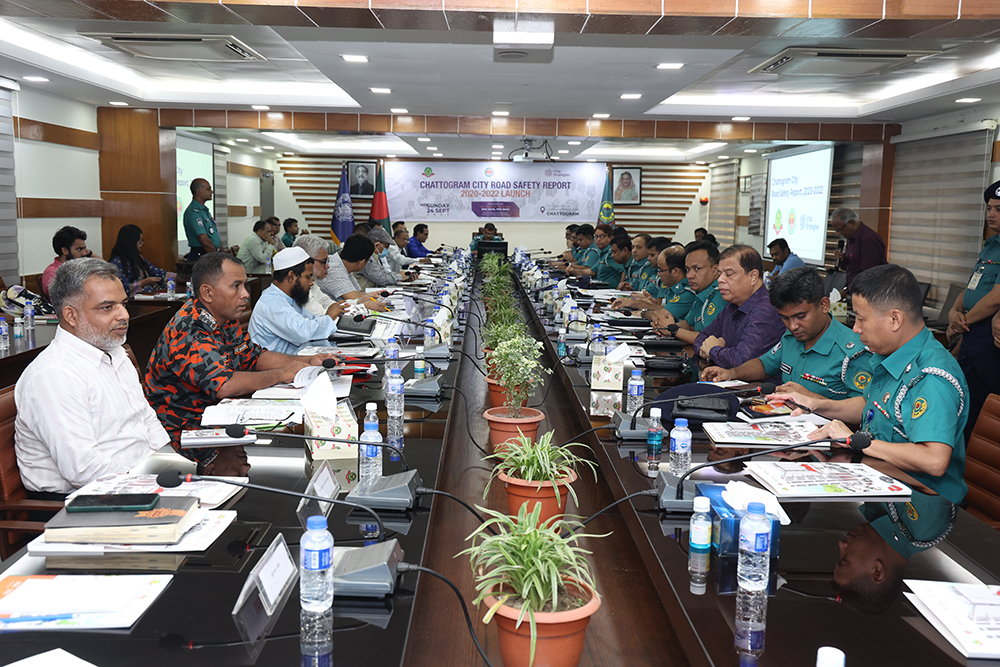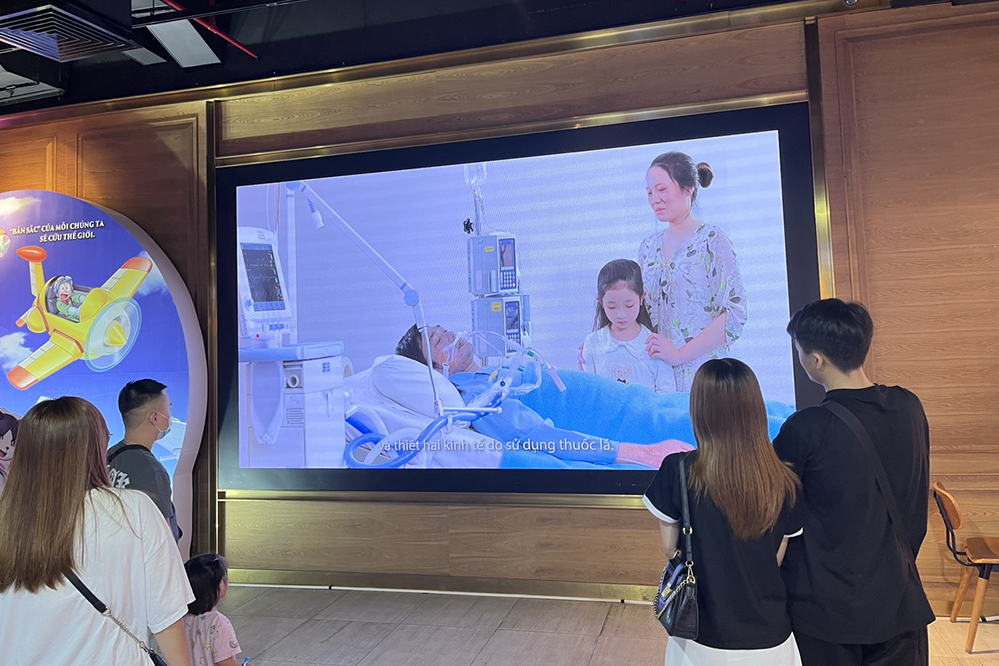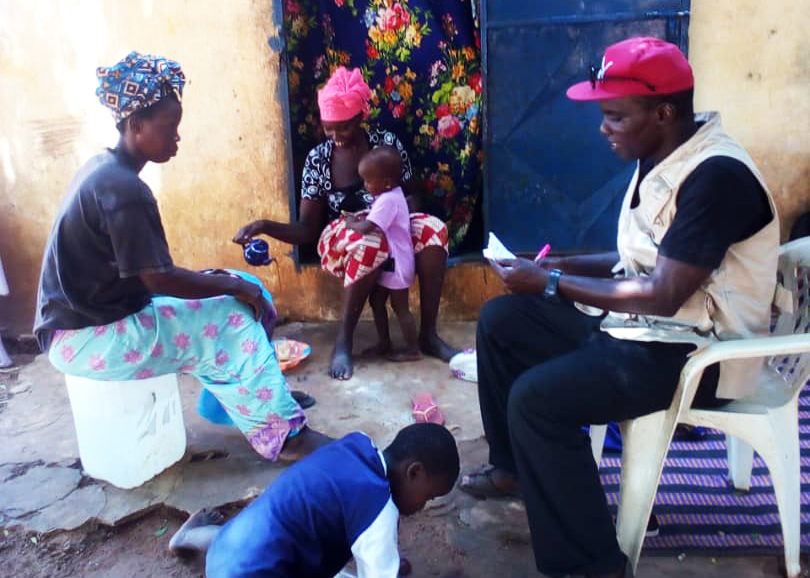This video is part of our #SupportHarmReduction national campaign, which seeks to amplify and elevate the importance of harm reduction as the best strategy to end the overdose crisis.
Catalyzing Change Through Partnership:
2023 Year in Review
Confronting the Overdose Crisis With a Public Health Approach
Vital Strategies partners with states, municipalities and civic groups in seven U.S. states to promote harm reduction strategies proven to reduce overdose deaths.
naloxone kits distributed through Michigan’s online naloxone portal with Vital Strategies' support
partners in 21 states who received Vital Strategies’ “DIY Event Boxes” for International Overdose Awareness Day
uptick in traffic to the Support Harm Reduction website
In Michigan, Vital Strategies supported the creation of an online naloxone portal, providing policy advising and program staffing. For International Overdose Awareness Day, Vital provided partners in 21 states with boxes filled with posters, flyers, banners and other materials for events that promoted the principles of the Support Harm Reduction campaign, which calls for universal access to: naloxone to reverse opioid overdoses; drug checking resources; safer drug use supplies; overdose prevention centers; and opioid use disorder treatment. Outreach for International Overdose Awareness Day drove a 240% increase in traffic to Vital’s Support Harm Reduction campaign website.
Vital Supports States to Use Opioid Settlement Funds to Save the Most Lives
Funds from the landmark $26 billion nationwide opioid settlement are starting to reach communities around the country hardest hit by the overdose crisis. What is the best way to make this money count? Vital Strategies’ Overdose Prevention Program is working with state and local partners to channel these settlement funds so they have the greatest impact. Vital Strategies offers support, resources and guidance to state and local governments seeking to invest in initiatives and policies proven to reduce overdose and improve health outcomes.

Decades of research has shown that harm reduction strategies—such as access to safe drug use supplies, drug testing, and naloxone to reduce overdose—reduce rates of overdose among people who use drugs, while punitive measures—like criminalization and incarceration—increase the risk of overdose deaths and create a more dangerous drug supply. Naloxone is available in a nasal spray, as shown at left, that’s easy to administer and can save a life.

By investing opioid settlement dollars to develop and implement programs and services that focus on support rather than punishment, governments, advocates, and community organizations can save lives. Vital Strategies is working with partners across the country to do just that. At left, Voices of Community Activists and Leaders—Kentucky (VOCAL-KY) conducted grassroots organizing in Louisville to promote a harm reduction approach to drug use. See below for more on some of our state and municipal-level efforts.
Vital Strategies' State and Local Efforts to Support Investment for Harm Reduction
Vital Strategies dedicated $1.5 million over three years to North Carolina counties. The grants program offers up to $210,000 over three years to counties that agree to allocate matching or greater amounts from their settlement funds to support local harm reduction programs. Eight applicants representing 12 North Carolina counties were selected to receive funding that will help to expand community-based naloxone distribution and syringe service programs.
The Michigan Association of Counties and Vital Strategies have produced a Michigan Opioid Settlement Funds Toolkit: A Guide for Local Spending. This new toolkit provides local governments, community organizations and health care providers with strategies for using the opioid settlement funds—amounting to nearly $800 million to the state over 18 years.
Vital Strategies partnered with the National Association of Counties to help launch the Opioid Solutions Leadership Network, which gathered 30 county leaders from across the nation to pursue public health solutions to the overdose crisis and the most effective use of opioid settlement funds. Over a one-year period, the network held several convenings, virtual sessions, and program site visits to help local leaders explore opioid abatement strategies across the substance use continuum of care, including prevention, substance use disorder treatment and harm reduction programs.
To amplify community voices advocating for a health-based, non-punitive response to drug use, Vital Strategies is supporting partners in Kentucky, Michigan, New Jersey, New Mexico, North Carolina, Pennsylvania and Wisconsin with state-focused guides focusing on how to engage in the decision-making processes for use of the opioid settlement funds.
Supporting 12 counties in North Carolina to invest in harm reduction
Vital Strategies dedicated $1.5 million over three years to North Carolina counties. The grants program offers up to $210,000 over three years to counties that agree to allocate matching or greater amounts from their settlement funds to support local harm reduction programs. Eight applicants representing 12 North Carolina counties were selected to receive funding that will help to expand community-based naloxone distribution and syringe service programs.
Building a toolkit to guide local spending in Michigan
The Michigan Association of Counties and Vital Strategies have produced a Michigan Opioid Settlement Funds Toolkit: A Guide for Local Spending. This new toolkit provides local governments, community organizations and health care providers with strategies for using the opioid settlement funds—amounting to nearly $800 million to the state over 18 years.
Launching the Opioid Solutions National Leadership Network
Vital Strategies partnered with the National Association of Counties to help launch the Opioid Solutions Leadership Network, which gathered 30 county leaders from across the nation to pursue public health solutions to the overdose crisis and the most effective use of opioid settlement funds. Over a one-year period, the network held several convenings, virtual sessions, and program site visits to help local leaders explore opioid abatement strategies across the substance use continuum of care, including prevention, substance use disorder treatment and harm reduction programs.
Supporting local partners advocating for change
To amplify community voices advocating for a health-based, non-punitive response to drug use, Vital Strategies is supporting partners in Kentucky, Michigan, New Jersey, New Mexico, North Carolina, Pennsylvania and Wisconsin with state-focused guides focusing on how to engage in the decision-making processes for use of the opioid settlement funds.
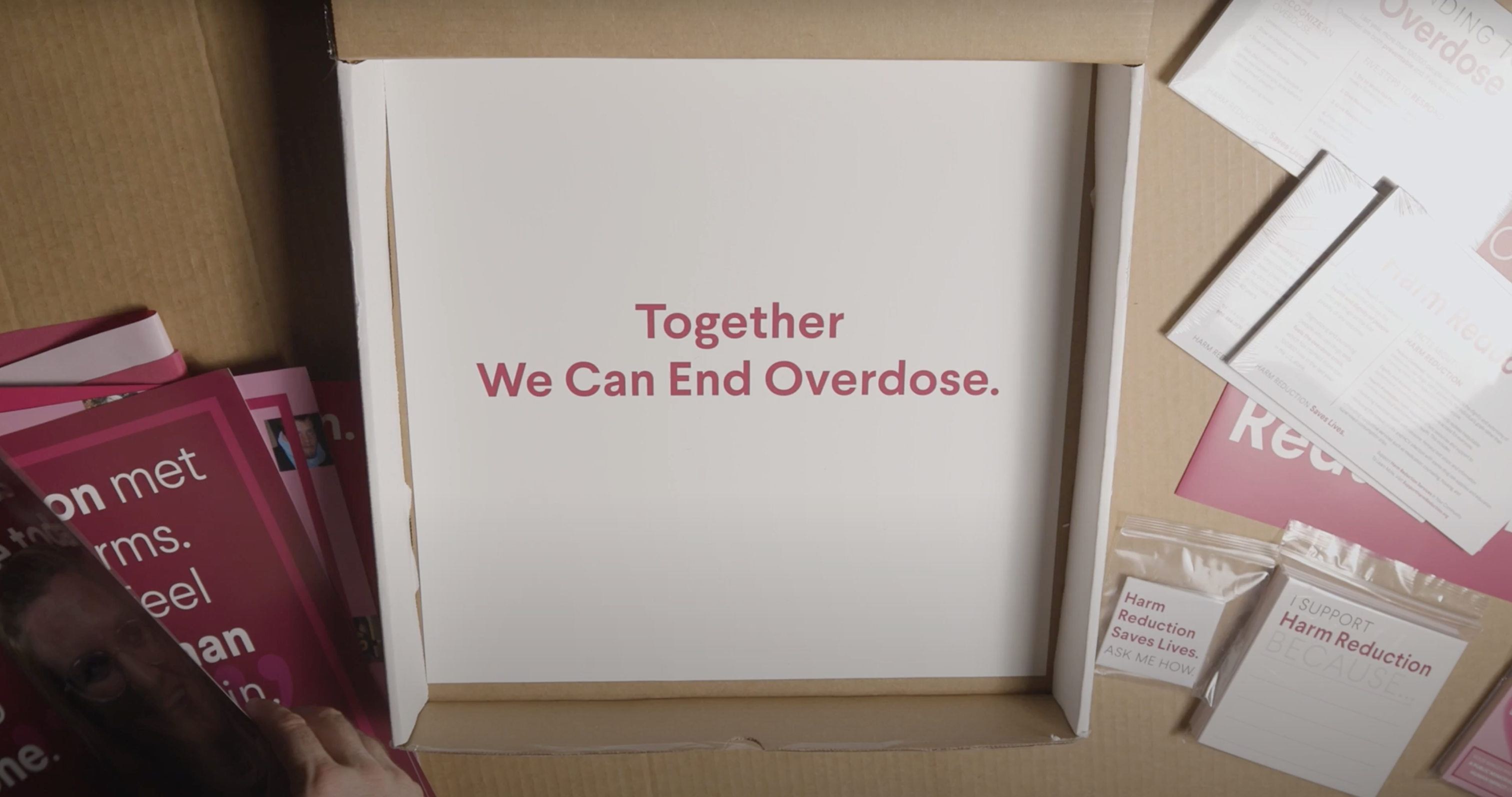
Supplying 300 Support Harm Reduction “DIY Event Boxes” to Support Community Events for International Overdose Awareness Day. To provide community groups and government agencies around the country with “Do It Yourself” boxes to help organize Overdose Awareness Day events, Vital Strategies curated comprehensive digital and printed assets—from video and social media posts to posters, banners and buttons—to build support for harm reduction, the proven public health solution to the overdose crisis. These events generated media coverage across the country, from students highlighting prevention in North Carolina, to communities taking action in New Mexico.

Taking to the Airwaves in Milwaukee to Save African American Lives
In response to the rise of overdose fatalities among Black people in Milwaukee County, which jumped by 52% between 2020 and 2021, Vital Strategies partnered with the City of Milwaukee Office of African American Affairs to launch a radio campaign to raise awareness of and promote the use to naloxone to help save lives, with hosts like Promise, pictured here. Launched in August 2023, the campaign ran through November and reached 90% of the city’s Black population aged 35-64.

Athens Receives Global Recognition for Overdose Prevention Wins
At a March 2023 summit in London convening mayors from Vital Strategies’ global Partnership for Healthy Cities network, Athens, Greece was one of five cities recognized for making great strides in public health. The city received a $150,000 grant to further its work increasing access to naloxone, the opioid overdose reversal agent, at community-based organizations and from health care providers. In addition, Athens began researching causes of death among people who inject drugs to better understand the impact of the overdose crisis.
Every overdose death is preventable. Vital Strategies partners with governments, providers and communities across the United States to advance health-centered solutions that engage communities, support people who use drugs, and enable broader access to lifesaving medications.
Get Our Latest Public Health News
Join our email list and be the first to know about our public health news, publications and interviews with experts.


